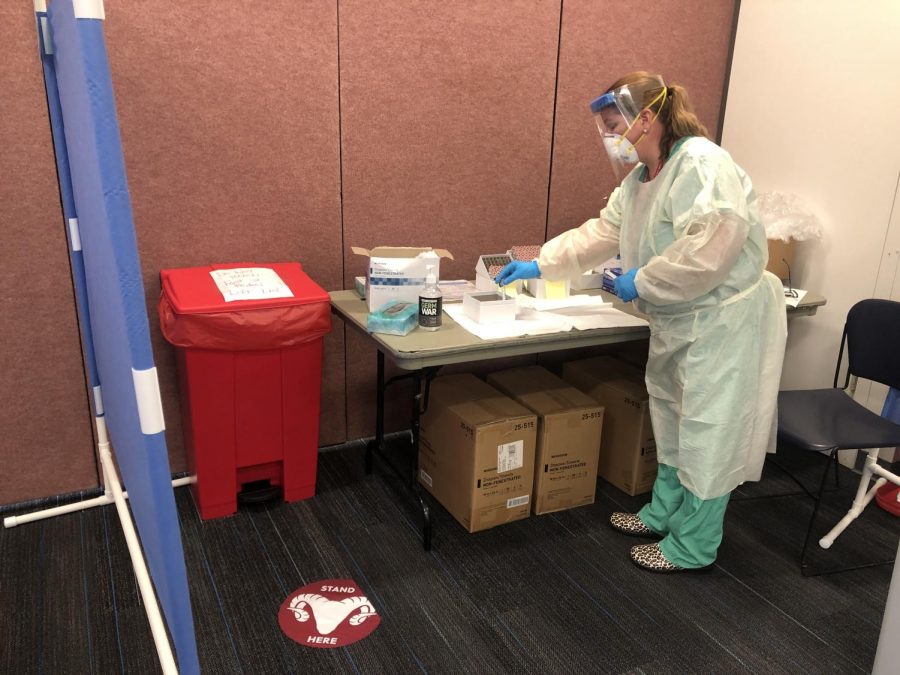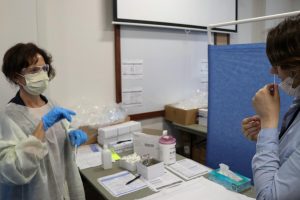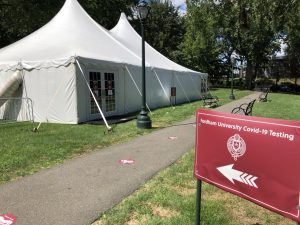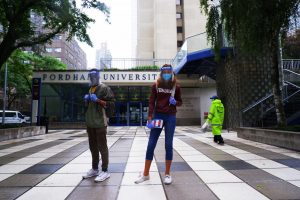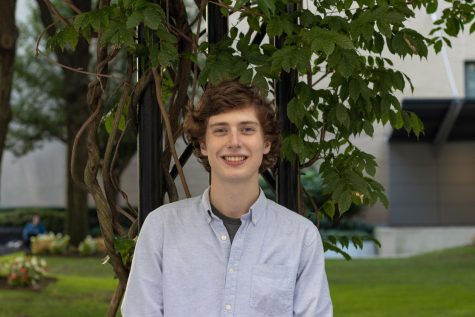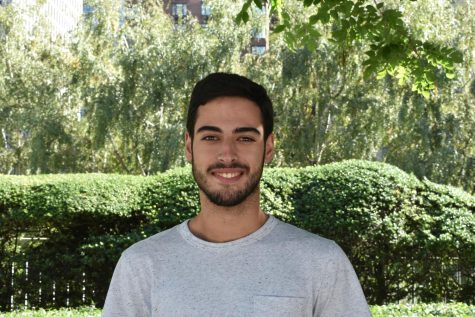A Look into Fordham’s On-Campus Testing Facilities
University testing part of larger screening and tracing effort
Fordham’s testing centers, located on both Rose Hill and Lincoln Center campuses, offer self-administered nasal swab tests for all community members free of charge.
September 18, 2020
One of the various contingencies and precautions against COVID-19 Fordham is taking this semester is consistent on-campus testing for all community members.
Both campuses have their own testing facility staffed by a combination of paid nurses and unpaid volunteers from Fordham University Emergency Medical Services (FUEMS), a student led EMS program.
Both facilities are capable of testing upwards of 400 students and employees for free. But how does Fordham administer and process these tests, and who’s working to administer them?
Fordham’s two testing sites are located in a tent outside of O’Hare Hall at Rose Hill and in McMahon rooms 205 and 206 at Lincoln Center. They are staffed by three to four health services workers every day who are outfitted with full personal protective equipment — M95 mask, gloves, gowns and shields. Maureen Keown, director of University Health Services at Fordham, stated the university has hired several registered nurses to assist with testing, but the majority of workers are student volunteers from FUEMS.
“We reached out to our members to see if any were interested and if it was something they wanted to do, and surprisingly, many many people responded back,” Usemma Khan, Fordham College at Rose Hill (FCRH) ’21 and director of FUEMS, said. Forty members volunteered to help, ranging from registered EMTs who can administer tests to non-EMTs who help with registration and patient information.
Testing on campus started on Aug. 15, according to Dylan Garvey, FCRH ’21 and Head of Day staff at FUEMS. Garvey has been scheduling volunteers’ working hours to complement their school schedules.
Student volunteers continue to work into the semester, with Garvey assigning volunteers’ work schedules to balance with their school commitments. Testing facilities are planned to continue operating indefinitely to provide community members with free testing.
Random testing is also being rolled out, with the objective of screening the university community for asymptomatic individuals. Random testing would also be conducted in instances where an outbreak may occur on campus.
Fordham’s testing facilities currently offer molecular diagnostic tests, in which a nasal swab is brushed through one’s nostrils to detect signs of infection from COVID-19. The university requires that all students returning to campus have tested negative with a nasal swab test before their return.
Community members who have gotten tested on campus felt unburdened by the process. Crea Dow, Fordham College at Lincoln Center ’22, says she “was in and out in five minutes.”
The testing facilities are also designed to quickly test a large portion of the university should the need arise. “Suppose that there’s an outbreak, in, say, one of the residence halls, they will do testing for everybody who lives in that building,” Khan said.
Fordham is additionally working on contact tracing through Public Safety, according to Khan. “So suppose that they find through contact tracing that there’s other people that were potentially exposed, they’ll call them in for that as well, and help prevent further spread, basically,” Khan explained. Contact tracing is highly recommended by the Centers for Disease Control and Prevention as one of the most effective ways to map and contain an outbreak.
Garvey encouraged community members to sign up online via Fordham’s website to get tested, although walk-ins are accepted on some days “if there’s not any spot available for you.”

